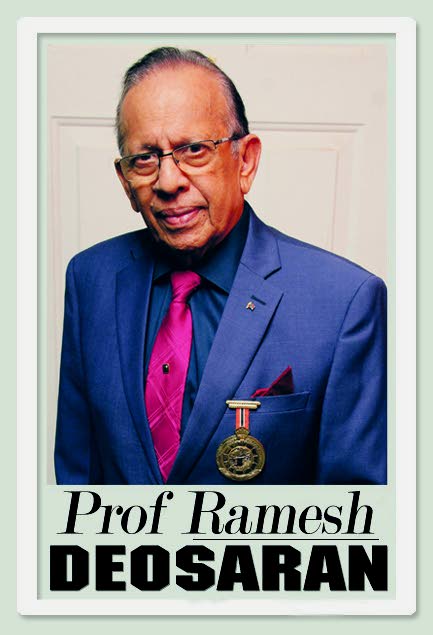About doubt, faith and God

I found myself last Wednesday reading Archbishop Charles Jason Gordon’s book, 12 Reasons to Believe in God (2022). He had given it to me, graciously inscribing, “With gratitude and blessings.”
The book is his reasoning about the existence of God, how the clash between faith and reason is resolved, whether the universe had a beginning or is eternal, and the perennial debate over biological evolution vs creation theory.
The book is spiritual therapy in a saddening environment filled with daily doses of ugly news, murders, and propaganda exchanges, leaving no room for fresh ideas or proposed solutions for progress.
However, the “ugly news” has a profitable market, the “whole, whole, whole blinking market,” so much so that even those in places to bring light get crowded out. So we are all going down the road together.
The great value of the very affable archbishop’s book is that even atheists and “lost souls” will find it educational. He writes with such humility and intellectual honesty. Faith in the existence of God has become a shelter, not only for the depressed or lonely, but also prompted by a spiritual impulse to fill a yearning space.
Fr. Gordon’s 95-page journey, from a skeptical Saul to a well-qualified theologian, spiritual philosopher, and now inspiring missionary, explains: “You may say I am writing all this because I am a priest and an archbishop. I can assure you that I am a priest and an archbishop because I struggled hard and long with belief and unbelief.”
He humbly confesses his own early weaknesses, his taunting doubts over faith, and the spiritual struggles to fully believe in God. He admitted the two times he “bumped into doubt.”
Once, at 20 years old, he recalled: “As I walked out of mass on a Saturday evening, I heard myself saying: unless I find a reason for going, I do not think I will go back.” Like many others, I too faced such doubts, especially when I think like a social scientist.
I see the doubt which faced Archbishop Gordon not just as a cognitive experience, but the temptation from Satan himself. And at that time, he apparently did not yet have the spiritual fortitude to say, “Get thee behind me, Satan” – a test we all face at one time or another.
His “second doubt” arose when, in his third theology year, he went to the soup kitchen at Duncan Street, Port of Spain. On his way back to the seminary, he questioned: “If the poor have a special place in God’s heart, why, when I pray for trivia, I get it, but when the poor pray for serious stuff, God does not answer?”
Well, when it comes to “God not answering prayers,” half of the world is likely asking that same question. Poor people praying but still starving, families praying but their homes are bombed out, priests pray and still get robbed, etc. Even in Trinidad, so many churches, so many prayers, and so many murders and crime against the prayerful. And still, the faith remains.
Of course, I understand Fr. Gordon’s light-hearted examples of doubt. But I also believe that there is something else, something higher, mysterious. Those suffering from poverty, crime, etc., do not bring it upon themselves; it is brought by the evil-mindedness and wickedness of others, offenders who need “to be saved.”
I am still to understand the mystery when innocent, praying people who fully believe in God suffer so. Is it an earthly credit towards heaven? Is it a test of their faith? Hindus say it is their karma, reaping what they once sowed, and how they treat their suffering will help them become better people on the way up.
Fr. Gordon, with intellectual courage, gets into the tension between faith and reason. He reconciles it this way: “Faith has to be reasonable; the propositions of faith cannot be irrational. This is vital for the truth claims of religion.”
He adds: “If we sweep back through the origins of the universe and DNA, the first building blocks of life, we can see that the belief in a creator is reasonable. Something had to ignite the Big Bang.”
By using “reason,” he is putting faith in God on a scientific footing.
The Big Bang is supposed to be a huge explosion from a very high-density but small object, with the explosion sending out stars, planets, gases, etc., and forming the universe.
There is mounting controversy, even doubts, over this fascinating theory, including the view that the universe was created before this explosion – and still expanding.
I also ask who made this high-density object? Evolution vs Creation Theory? Fr. Jason skillfully fits evolution into creation theory.
I am not a good friend of evolution, not with the mysteries of life and the human body and the shortcomings of genetic mutation. In fact, as a University of Toronto student in the zoology 450 class, I criticized evolution and got 100 per cent from Prof Rigler. Unforgettably, he wrote: “I certainly did enjoy reading this.”
Just as I enjoyed reading Archbishop Gordon’s soothing, enlightening book this Lenten season.

Comments
"About doubt, faith and God"